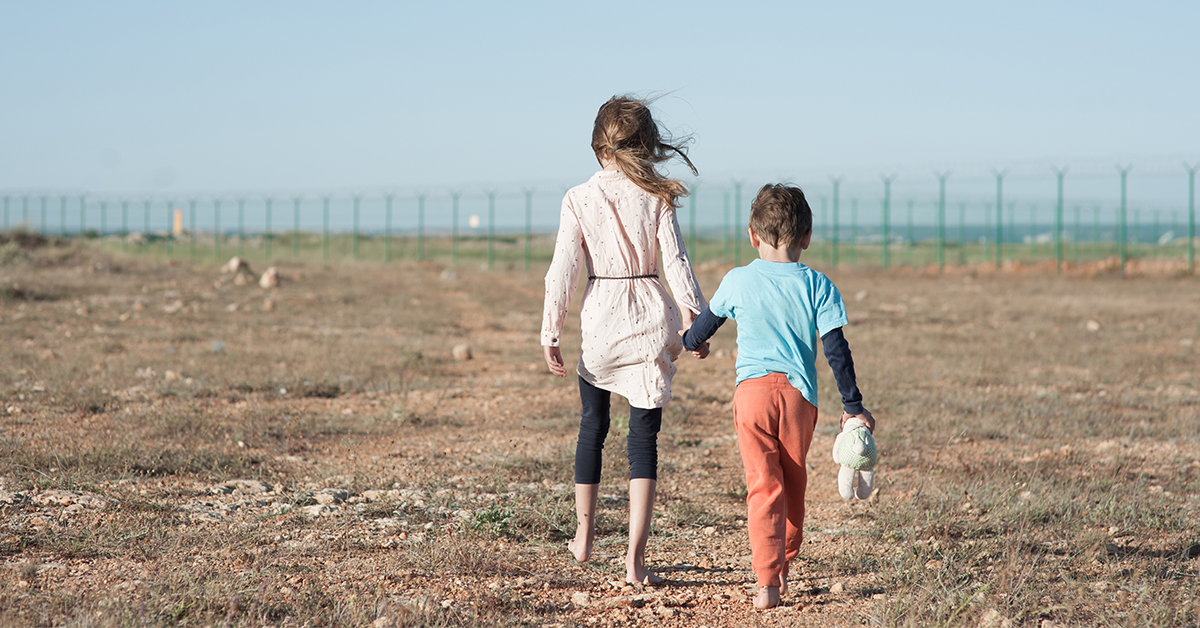International Christian Adoptions
You’ve read the headlines, but have you ever imagined what it’s like to be a child or youth refugee caught up in the border crisis? Aside from the politics and the photo ops, there is the blunt reality of thousands of children showing up on our border—and thousands more in refugee camps awaiting their opportunity for a family and a safe home with education, food, and clean water.
These youth desire to be here. They have risked much and they are motivated to assimilate, set goals, start fresh—but they need a safe place to land, a family, in order for this to happen.
At ICA, the refugee youth we serve have already exhausted all other possibilities for a home here in the U.S. Foster care is their last resort.
Our perspective, as Christians, is that we have no control of the political or socio-economic conditions. We did not seek these young people out or submit them to the adversities of international migration—yet they are here, and that leaves Christians asking: Who is my neighbor? And what is my responsibility now that they are on our doorstep?
Trauma
The painful truth is that, for the majority of youth caught up in the surge of refugees, they’re trying to escape trafficking, servitude, abuse, mutilation, war, civil unrest, famine, gang violence, and abandonment—threats facing youth around the world. Not to mention the traumatic experiences the journey itself afforded.
Engaging with young people who have experienced trauma is not as scary as it seems, and we equip our families to become trauma-informed, healing caregivers. Healing most often begins in a relationship with a safe, caring adult who truly understands and shows compassion.
At ICA, we help families to meet the needs of foster youth by providing training, as well as therapists and counselors, as part of our commitment to working with youth to reach their full potential.
Separation
Many incoming children and youth reach the border alone, with no way of connecting with family members who are either in the U.S. or migrating at the same time. The loneliness, isolation, and home-sickness come in waves, and their experience may be vastly different from what they were promised.
Thousands of other youth from desperately poor backgrounds have left behind loving family relationships and undertaken the journey because of their awareness of the crushing economic pressures in their home countries.
Exploitation
Outside of our borders, human traffickers profit from the crisis by charging obscene fees and using their human cargo as leverage in a cruel and illegal industry rife with violence and abuse. Unfortunately, inside the U.S. there are also forces that tend to exploit children for political and other purposes.
As a result, these youth often arrive having experienced tragic and heart-wrenching acts of exploitation along the way. We frequently serve victims of labor trafficking, sex trafficking and often see impregnated girls or teens with young children of their own.
Confusion
Imagine, after the trauma of human smuggling, what it would be like as a teenager to arrive in a system as complex as U.S. Immigration. Now imagine wondering if you will ever see your parents again, or hoping that your aunt and uncle still live at the address you memorized, or any number of other scenarios.
Imagine how disorienting it would be when all attempts to connect with a relative in the U.S. fail and you realize you are truly on your own.
Love
The lack of it, the need for it, the hope of experiencing it again.
What teens often seek is safety and self-sufficiency, but what they need is a peaceful and stable home. Foster care plays a crucial role by moving youth out of holding facilities and into caring homes, where they can get their feet under them, learn how to assimilate into American society, and make plans for a better future.
Ultimately, the goal is to show them Christ’s love: “Three things will last forever—faith, hope, and love—and the greatest of these is love” (1 Corinthians 13:13).
Contact International Christian Adoptions today to learn more about how you can be a part of the solution.







